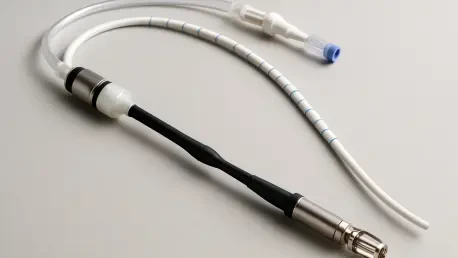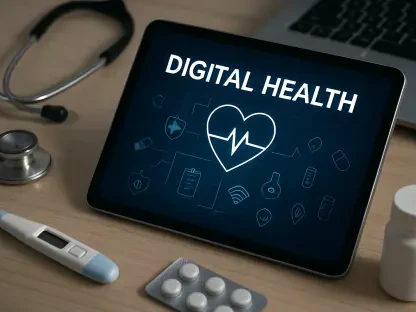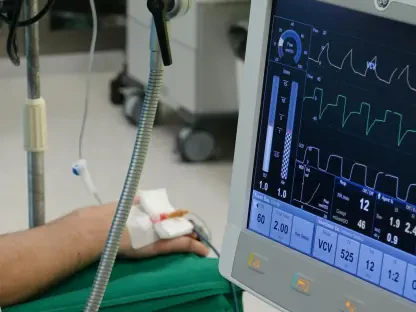In an era where medical technology saves countless lives, a startling vulnerability has emerged in one of the most critical devices used in cardiac care, raising serious concerns about patient safety. Johnson & Johnson’s Abiomed unit has initiated a Class I recall of its Impella heart pump controllers due to significant cybersecurity flaws that could jeopardize patient well-being. This development raises pressing questions about the intersection of digital security and healthcare, as connected devices become integral to life-saving treatments. The recall, classified as the most serious by the FDA, underscores a growing concern: how can the medical field balance innovation with the urgent need to protect against unseen digital threats?
Overview of the Impella Heart Pump Recall
The Impella heart pump, a vital tool in supporting blood flow during high-risk cardiac procedures, is at the center of a major recall due to cybersecurity vulnerabilities in its automated controllers. Announced by regulatory authorities, this Class I recall targets specific models, including the Impella 2.5, highlighting risks that could potentially disrupt device functionality. Although no patient harm or cyberattacks have been reported, the severity of the possible outcomes necessitated immediate action to safeguard those reliant on this technology.
This recall poses a unique challenge for healthcare providers who depend on the Impella pump for critical interventions, such as managing cardiogenic shock. The primary concern lies in the potential for unauthorized access to the controller’s operating system, which could lead to life-threatening malfunctions. Striking a balance between maintaining device availability for emergency care and addressing these digital risks has become a top priority for both the manufacturer and regulatory bodies.
Background and Importance of the Recall
The Impella heart pump plays an indispensable role in modern cardiology, assisting patients undergoing complex heart procedures or recovering from severe cardiac events. By temporarily supporting blood circulation, it provides a lifeline during moments when the heart cannot function independently. However, as medical devices like this become more integrated with networked systems for monitoring and updates, they also become targets for cyber threats that could undermine their reliability.
Cybersecurity in healthcare technology has evolved into a critical issue, with increasing connectivity exposing devices to risks previously unseen in clinical settings. The recall of the Impella controllers brings this concern into sharp focus, illustrating how digital vulnerabilities can directly impact patient outcomes. It serves as a stark reminder that ensuring the integrity of medical equipment extends beyond physical components to include robust protection against cyber intrusions.
This incident also reflects a broader trend within the medical field, where the push for advanced technology must be accompanied by stringent security measures. Patient safety remains paramount, and recalls like this one signal a need for heightened awareness and proactive strategies to address digital weaknesses. The implications extend beyond a single device, prompting a reevaluation of how the industry approaches the security of life-sustaining equipment.
Cybersecurity Vulnerabilities and Response Strategies
Nature of Vulnerabilities
Internal risk assessments conducted by Abiomed revealed critical cybersecurity flaws within the Impella controller’s operating system, specifically related to network and physical access points. These vulnerabilities, deemed to carry an unacceptable level of risk, could allow unauthorized individuals to gain control over the device. Such a breach might result in the pump stopping unexpectedly, posing a direct threat to patients who depend on its continuous operation.
The potential consequences of these flaws are severe, ranging from temporary impairment to permanent injury or even death. If exploited, the loss of control over the device could disrupt critical care at a moment when every second counts. This alarming possibility, though not yet realized in any reported incident, underscores the urgency of addressing the identified weaknesses before they can be leveraged maliciously.
Response and Mitigation Efforts
In response to the identified risks, Abiomed has implemented several immediate measures to protect patients and healthcare providers. Customers have been advised to secure the Impella controllers in restricted environments, minimizing the chance of unauthorized access. Additionally, the company has disabled network capabilities on affected devices to prevent potential cyber intrusions while a permanent solution is developed.
Field representatives are actively engaging with healthcare facilities to assist in implementing these protective steps, while detailed instructions have been provided for those opting to disable network functions independently. Abiomed is also working on security updates to resolve the vulnerabilities, with plans to restore network connectivity once the fixes are deemed safe. However, a specific timeline for these updates remains undisclosed, leaving some uncertainty in the interim.
Implications for Healthcare
This recall highlights a growing challenge in the healthcare sector, where the integration of connected technologies introduces new risks alongside their benefits. As medical devices become more sophisticated, the potential for cybersecurity breaches to affect patient care has emerged as a pressing concern. The Class I designation by the FDA emphasizes the gravity of the situation, signaling that these vulnerabilities demand swift and decisive action.
Beyond the immediate context of the Impella pump, this incident serves as a cautionary tale for the industry at large. It illustrates the need for comprehensive security frameworks to be embedded in the design and maintenance of medical technologies. The recurrence of issues with these controllers, marking the third recall since mid-2025, further amplifies the call for systemic improvements in how digital risks are managed.
Reflection and Industry Challenges
Reflection on the Recall Process
The handling of this recall, while proactive, reveals the complexities of addressing cybersecurity threats in medical devices without disrupting patient care. Despite the absence of any reported harm or cyberattacks, the potential for catastrophic outcomes necessitated a robust response. This situation reflects a cautious approach, prioritizing prevention over reaction, even as it places additional burdens on healthcare providers to adapt quickly.
A notable aspect of this recall is the recurring nature of issues with the Impella controllers, as this marks the third instance of concern raised since June 2025. Previous alerts addressed different operational problems, such as purge pressure discrepancies, indicating a pattern of challenges with this critical equipment. These repeated incidents suggest underlying difficulties in ensuring consistent reliability and security, prompting questions about long-term solutions.
Future Directions for Medical Device Security
Looking ahead, there is a clear need for the medical technology sector to adopt enhanced cybersecurity protocols from the earliest stages of device development. Embedding robust safeguards into the design process could prevent vulnerabilities from arising in the first place, reducing the likelihood of future recalls. Collaboration between manufacturers, regulators, and cybersecurity experts will be essential to achieving this goal.
Exploration of standardized risk assessment frameworks could provide a consistent approach to identifying and mitigating digital threats across various devices. Additionally, streamlining the deployment of security updates would help address issues more rapidly, minimizing disruptions to clinical workflows. These steps, if prioritized, could strengthen trust in connected medical technologies and ensure they remain safe for patient use.
Addressing Digital Risks in Healthcare
The recall of Johnson & Johnson’s Impella heart pump controllers due to cybersecurity vulnerabilities brought to light a critical intersection of technology and patient safety. It revealed how even theoretical risks, with no reported incidents, demanded urgent action to prevent potential harm. The response, including disabling network capabilities and developing security patches, demonstrated a commitment to addressing the issue, though it also exposed recurring challenges with the device.
Moving forward, actionable steps emerged as vital considerations from this event. Manufacturers should invest in preemptive security measures, integrating them into the core design of medical devices to thwart cyber threats before they manifest. Regulatory bodies and industry stakeholders must also collaborate on establishing clear guidelines for rapid response to digital vulnerabilities, ensuring that patient care remains uninterrupted. Finally, fostering ongoing dialogue about cybersecurity in healthcare can pave the way for innovative solutions, safeguarding the future of life-saving technologies against unseen digital dangers.









